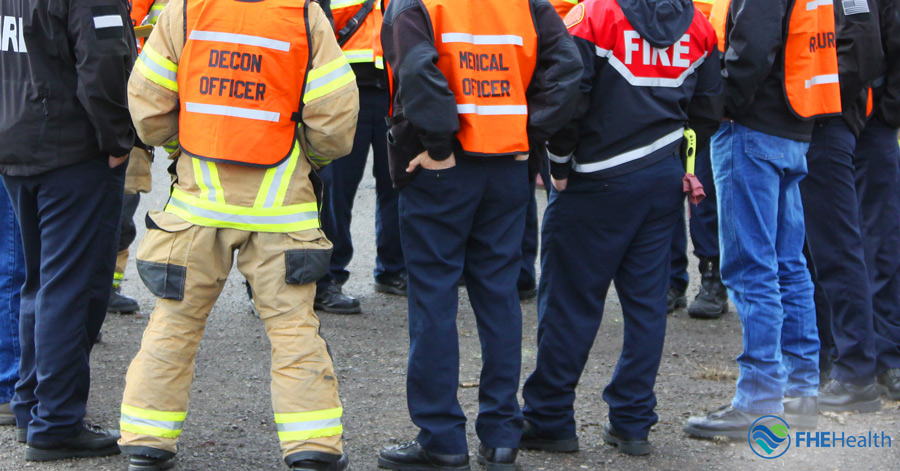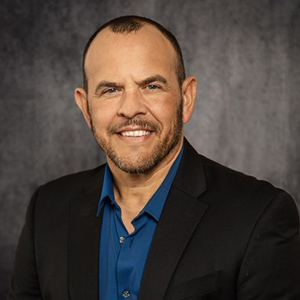
This article has been reviewed for accuracy by our peer review team which includes clinicians and medical professionals. Learn more about our peer review process.

Critical stress debriefings, a preventative intervention after exposure to trauma, have grown in use among police and fire departments across the country. That may be because it is now widely known that when regular exposure to trauma goes unaddressed, that can lead to mental health issues like depression and PTSD, significantly impair job performance, and endanger people’s lives … but how can critical stress debriefings help?
Few are as qualified to answer this question as retired law enforcement officer Patrick Fitzgibbons. Prior to joining FHE Health as a national outreach liaison, Fitzgibbons spent 23 years in law enforcement, rising through the ranks to become operations commander for Louisville Police Department, in a suburb of Denver, Colorado. Today, Fitzgibbons is a spokesperson for first responder mental health on his award-winning criminal justice podcast CJEvolution. What follows are highlights from our conversation.
What Is Critical Stress Debriefing?
What is the critical stress debriefing, and when is it used? “A critical stress debriefing or critical incident debriefing is when an officer or officers are involved in a critical incident, which can be anything deemed a higher priority, such as a stabbing, an officer-involved shooting, or a school threat,” Fitzgibbons said.
Elements of the Critical Stress Debriefing
The critical stress debriefing typically contains a few elements. It is an opportunity for first responders to process what just happened. Much of the debriefing is “talking about the incident and what we could do better.”
The debriefing is also “an opportunity for officers to talk freely about their feelings.” Sometimes, Fitzgibbons said, “a clinician is present—every department can be different in how they handle these incidents.”
Purpose of the Critical Stress Debriefing
One purpose of the critical stress debriefing is to help a department assess, learn from, and improve its team’s response in critical incidents. Another purpose is to identify officers who may need additional “follow-up” in the form of counseling, time off, and/or other interventions.
Can Debriefing after Trauma Help Mental Health?
There is research to suggest that critical stress debriefings after trauma can help prevent the development of mental health issues like PTSD. From Fitzgibbons’ more personal and anecdotal experience, did he concur? “Yes,” he said, before recommending CISM (“critical incident stress management”) for its effectiveness as a preventative mental health measure.
CISMs are a type of critical incident debriefing. Sometimes called “psychological first aid,” CISMs are geared to help first responders mitigate stress and build trauma resilience, by giving them stress management tools. Some examples of these tools might be yoga, breathwork, or meditation, Fitzgibbons said. He said sometimes officers who have training in a particular skill will teach it to their peers. At other times, a department will bring in outside instructors like yoga teachers. In either case, the goal is to impart tools that, when practiced over time, build emotional resilience to stress, even traumatic stress.
Limitations of the Trauma Debrief Process
Of course, in a roomful of law enforcement officers processing a traumatic experience, many will not share their feelings. Why? “Because most don’t want to be viewed as weak or as having problems,” Fitzgibbons said. In this sense, trauma debriefings for first responders must contend with the added limitation of an occupational culture that is largely resistant to airing emotions and being vulnerable.
This is where, rather than talk openly in a roomful of work peers, “sometimes an officer will seek out the EAP (Employee Assistance Program) or a counselor,” Fitzgibbons said, adding that “it really comes down to the culture of the agency and if you have a good culture where the higher-ups understand.”
At the same time, one also gets the sense in speaking with Fitzgibbons that progress is happening at the macro level and that asking for help for a mental health issue is less stigmatized today than it was when Fitzgibbons was rising through the ranks: “When I started, if you went to a critical incident like a stabbing or shooting, back then the attitude was more like, ‘Do your paperwork; now get back out on the street.’” By contrast, the new generation of first responders is “more willing to ask for help,” Fitzgibbons observed.






